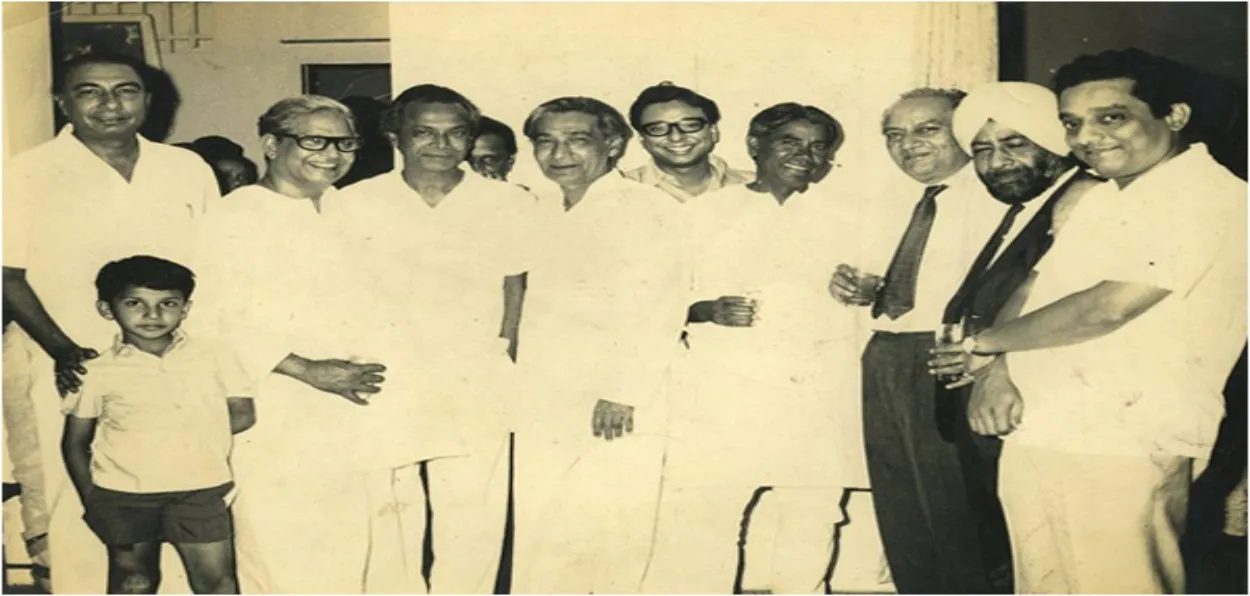
Saquib Salim
“Hum Dekhenge” (We shall witness) has been used as an anthem of people’s movements among the Hindi-Urdu-speaking population across the globe. For the last four decades students, workers, and political outfits have used this poem for unity of the cause.
A Slice Of History
The poem was written by Faiz Ahmad Faiz in 1979 when Gen Zia-ulHaque ordered a crackdown against the Marxist scholars. To delegitimize scholars in the eyes of the common people, propagated through its media that Marxists or Leftists were atheists or anti-Islam.
In the war of optics, Faiz wrote a poem using Islamic symbolism to prove that they knew Islam well and their struggle against the tyrant was in complete agreement with the teachings of the Quran.
Sahir Ludhianvi, another stalwart of the Urdu poetry had already written a poem against the government of Pakistan in 1949 with the same message, “Hum bhi Dekhenge” (We too shall witness). India and Pakistan had just attained independence and Sahir lived in Lahore. His poem was about people's aspirations to have a communist or socialist government in Pakistan. No wonder Sahir had to flee Lahore and come and settle in India soon after.
Unlike Faiz, Sahir didn’t use Islamic imagery in his poem: the poem is a straightforward message of Marxist socialism.
Sahir wrote, “Dabegi kab talak aavaaz-e-Aadam hum bhi dekhenge, Rukenge kab talak jazbaat-e-barham hum bhi dekhenge” (Till when can the voice of humans be suppressed? We too shall witness, Till when can agitating moods be controlled? We too shall witness). The idea comes from the Marxist ideology in which the result of social revolution is the people’s rule.
Thirty years later Faiz wrote, “hum dekhenge, laazim hai ke hum bhi dekhenge, woh din ke jiska waada hai, jo lauh e azal mein likha hai, hum dekhnege” (We shall Witness, It is certain that we too, shall witness, the day that has been promised of which has been written on the slate of eternity). Sahir was hoping the day when the prophecy of socialist, or communist thinkers, would come true. Faiz brings home the same point using the Quranic idea of Lauh-e-azal. The Quran uses the term to refer to the eternal slate on which the destiny of the whole universe from inception to doomsday has been recorded. Faiz declares that people will witness the promised day which has been written in the eternal slate according to the Quran.
A close reading of the two poems reveals that their tone and messages of the two were similar. As an example: if Sahir wrote, “jabeen-e-kaj-kulaahi ḳhaak par ḳham hum bhi dekhenge” (we too shall witness the heads wearing royal caps on dusty earth), Faiz wrote, “Sab taaj uchale jaenge, Sab takht girae jayenge” (All the crowns will be tossed, All the thrones will be brought down).
Faiz ended his poem with the hope that Muslims will be able to see the rule of justice before the world ends. He ended his poem with, “Utthega an-al-haq ka nara, Jo main bhi hoon tum bhi ho, Aur raaj karegi Khalq-e-Khuda, Jo mai bhi hoon aur tum bhi ho” (I am the Truth - the cry will rise, Which is I, as well as you, And then God’s creation will rule, Which is I, as well as you)
In contrast, Sahir ended his poem with a clear message that he wanted to see a Red Flag of Communist Government in Pakistan. He wrote, “ye hangaam-e-vidaa-e-shab hai ai zulmat ke farzando, sahar ke dosh par gulnaar parcham hum bhi dekhenge, tumhen bhi dekhna hoga ye aalam hum bhi dekhenge” (Now you have to leave the successors of tyrants, We too shall witness Red Communist flag on our city, You will have to witness that moment and we to shall witness).
ALSO READ: Poll outcome endorsement of collective idea of India: Syed Mohammad Ashraf Kichhouchhwi
Though Faiz never credited Sahir as an inspiration for one of the most iconic poems, a close reading tells us that not only ideas but the language of Faiz was highly inspired by Sahir’s poem which predates his work by three decades.
